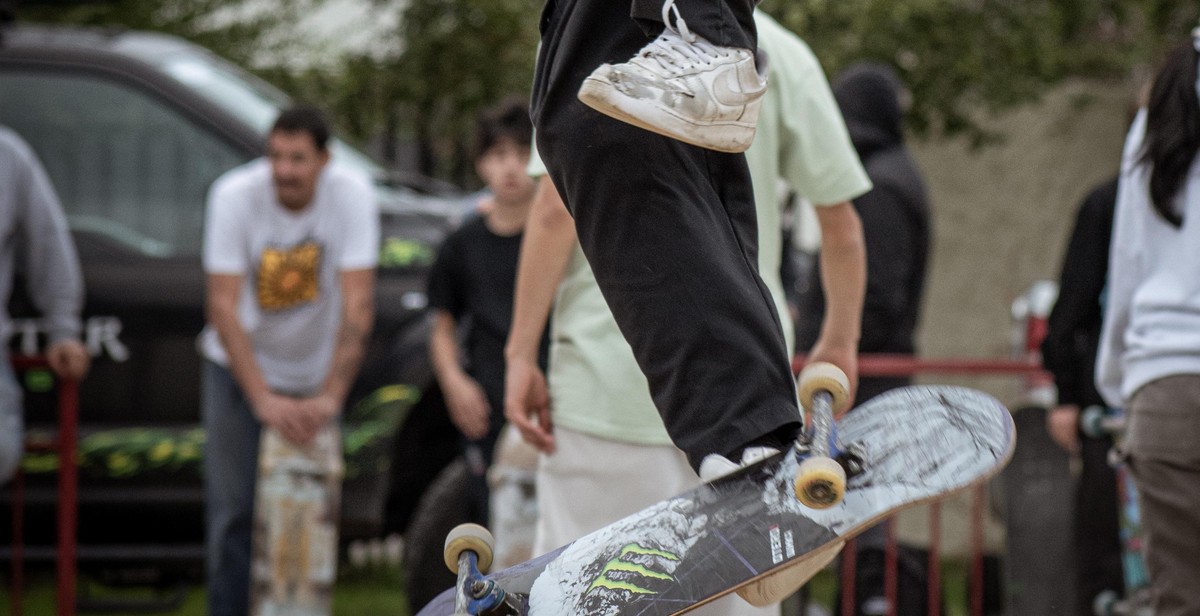Awareness in Gaining Power in One’s Own Actions
Have you ever felt like you’re going through life on autopilot, simply going through the motions without any sense of purpose or direction? I know I have. It’s a disheartening feeling, one that can leave you feeling stuck and unfulfilled. But what if I told you that there is a way to break free from this cycle and gain power in your own actions?
Through my own personal journey, I have come to realize the incredible power of awareness. Being aware of our thoughts, emotions, and actions is the key to unlocking our true potential. When we are aware, we can make conscious choices that align with our values and goals. We can take control of our lives and create the outcomes we desire.
But awareness is not something that comes naturally to most of us. It requires practice and intention. It’s about taking the time to reflect on our experiences, to question our beliefs and assumptions, and to be present in the moment. It’s about being open to feedback and willing to learn and grow.
In this article, I will share with you my own experiences and insights on how to cultivate awareness and gain power in your own actions. We will explore practical strategies and techniques that you can implement in your daily life to become more self-aware and take control of your destiny.
So, if you’re ready to break free from the autopilot mode and start living a more intentional and empowered life, let’s dive in!
Understanding the Power of Awareness
As someone who has been on a personal growth journey for many years, I have come to understand the immense power of awareness in shaping our actions and ultimately our lives. It is through awareness that we gain insight into our thoughts, emotions, and behaviors, allowing us to make conscious choices and take control of our actions.
The Role of Awareness in Personal Growth
Personal growth is a lifelong journey of self-discovery and self-improvement. It involves developing a deeper understanding of ourselves, our beliefs, and our values. Awareness plays a crucial role in this process because it allows us to observe and examine our patterns, habits, and reactions. When we are aware, we can identify areas of improvement and work towards changing them.
Awareness also helps us uncover our strengths and talents. By recognizing our unique abilities, we can focus on honing them and using them to our advantage. It empowers us to step out of our comfort zones and embrace new opportunities for growth and development.
How Awareness Affects Our Actions
Our actions are a direct result of our thoughts and emotions. When we are unaware of our internal processes, we tend to react unconsciously, often driven by fear, anger, or other negative emotions. However, with awareness, we gain the power to pause and reflect before acting.
Awareness allows us to choose our responses instead of reacting impulsively. It enables us to make decisions that align with our values and goals, leading to more positive outcomes. It helps us break free from self-sabotaging behaviors and fosters a sense of empowerment and self-control.
Ultimately, the power of awareness lies in its ability to transform our lives. By cultivating awareness, we become active participants in our own growth and take charge of our actions, paving the way for personal and professional success.

Developing Self-Awareness
Self-awareness is a crucial aspect of personal growth and development. It allows us to understand our strengths, weaknesses, and emotions, leading to better decision-making and improved relationships. Through my personal experience, I have found three effective strategies for developing self-awareness: practicing mindfulness, journaling for self-reflection, and seeking feedback from others.
Practicing Mindfulness
Mindfulness involves being fully present in the moment, observing our thoughts and feelings without judgment. By practicing mindfulness, we become more aware of our patterns of thinking and reacting. This awareness enables us to recognize and manage negative thoughts and emotions effectively. Incorporating mindfulness into daily routines, such as meditation or deep breathing exercises, can significantly enhance self-awareness.
Journaling for Self-Reflection
Journaling is a powerful tool for self-reflection. By writing down our thoughts, experiences, and emotions, we gain a deeper understanding of ourselves. Regularly reviewing our journal entries allows us to identify recurring patterns, triggers, and areas for personal growth. Journaling also provides a safe space to explore our innermost thoughts and feelings, leading to increased self-awareness.
Seeking Feedback from Others
Feedback from others can be invaluable in developing self-awareness. By actively seeking feedback, we gain insights into how our actions and behaviors impact those around us. Constructive feedback helps us identify blind spots and areas where we may need to make adjustments. Engaging in open and honest conversations with trusted individuals, such as mentors or close friends, allows us to gain different perspectives and deepen our self-awareness.

Taking Responsibility for Our Actions
Recognizing the Impact of our Choices:
One of the most crucial steps in gaining power over our own actions is recognizing the impact our choices have on ourselves and those around us. Every decision we make, no matter how small, has consequences. By acknowledging this, we become more mindful of our actions and can make more informed choices.
Learning from Mistakes and Failures:
Mistakes and failures are inevitable parts of life, but they also present valuable opportunities for growth. By taking responsibility for our actions, we can learn from our mistakes and use them as stepping stones towards personal development. Embracing our failures and using them as learning experiences allows us to make better choices in the future.
Committing to Personal Growth:
Taking responsibility for our actions means committing to our own personal growth. It requires us to be honest with ourselves and acknowledge areas where we can improve. By actively seeking self-improvement, we can develop new skills, gain new perspectives, and become better versions of ourselves.
Ultimately, taking responsibility for our actions empowers us to have more control over our lives. It allows us to make conscious choices, learn from our mistakes, and commit to personal growth. By recognizing the impact of our choices, learning from failures, and committing to personal development, we can take charge of our actions and create a more fulfilling and purposeful life.

Overcoming Limiting Beliefs
Limiting beliefs are the thoughts and beliefs that hold us back from reaching our full potential. They are deeply ingrained in our subconscious mind and often stem from past experiences, societal conditioning, or negative self-talk. However, by becoming aware of these beliefs, challenging and reframing them, and cultivating empowering beliefs, we can break free from their constraints and unlock our true potential.
Identifying Limiting Beliefs
The first step in overcoming limiting beliefs is to identify them. This requires self-reflection and introspection. Pay attention to the thoughts and beliefs that arise in different situations and notice any patterns or recurring themes. For example, if you constantly doubt your abilities or believe that you are not worthy of success, these may be limiting beliefs that are holding you back.
Challenging and Reframing Limiting Beliefs
Once you have identified your limiting beliefs, it’s important to challenge them. Ask yourself if there is any evidence to support these beliefs or if they are simply based on assumptions or past experiences. Then, reframe these beliefs by replacing them with positive and empowering ones. For instance, if you believe that you are not good enough, remind yourself of your past accomplishments and focus on your strengths and abilities.
Cultivating Empowering Beliefs
Cultivating empowering beliefs is an ongoing process. Surround yourself with positive influences, such as supportive friends and mentors, who can help reinforce these beliefs. Practice positive affirmations and visualization techniques to strengthen your new empowering beliefs. Over time, these beliefs will become deeply ingrained in your subconscious mind, replacing the old limiting beliefs and empowering you to take action and achieve your goals.

Aligning Actions with Values
When it comes to gaining power in one’s own actions, aligning those actions with personal values is essential. Personal values are the guiding principles that shape our behavior and decisions. They serve as a compass that helps us navigate through life, ensuring that our actions are in line with what truly matters to us.
Clarifying Personal Values
Before aligning actions with values, it is important to have a clear understanding of what those values are. Take the time to reflect on what truly matters to you and what principles you want to live by. This self-reflection process will help you identify your core values, such as honesty, compassion, or integrity.
Integrating Values into Decision-Making
Once you have clarified your personal values, the next step is to integrate them into your decision-making process. Whenever you face a choice or need to make a decision, consider how each option aligns with your values. This will help you make choices that are in harmony with what you believe in, giving you a sense of empowerment and fulfillment.
Living Authentically
Aligning actions with values is not just about making decisions; it is about living authentically. When our actions are aligned with our values, we experience a sense of congruence and integrity. This authenticity radiates through our interactions with others, leading to stronger relationships and a greater sense of self-worth.
By aligning actions with personal values, we gain power over our own lives. We become more intentional in our choices and actions, creating a life that is in harmony with what truly matters to us.

Building Resilience and Adaptability
Embracing Change and Uncertainty:
Throughout my career as an article writer and content creator, I have learned the importance of embracing change and uncertainty. The digital landscape is constantly evolving, and staying ahead requires a mindset that welcomes and adapts to new challenges. By embracing change, I have been able to expand my skillset and stay relevant in an ever-changing industry.
Developing Emotional Resilience:
One aspect of building resilience is developing emotional resilience. This involves cultivating the ability to bounce back from setbacks, cope with stress, and maintain a positive mindset. As a professional, I have faced numerous challenges, including tight deadlines and demanding clients. By developing emotional resilience, I have been able to maintain composure, stay focused, and deliver high-quality work even in challenging circumstances.
Flexibility in Problem-Solving:
Another key component of building resilience is flexibility in problem-solving. In my experience, no project goes exactly as planned, and unexpected obstacles often arise. Being flexible allows me to adapt my approach, think creatively, and find alternative solutions. This adaptability has proven invaluable in overcoming obstacles and delivering successful outcomes.
Overall, building resilience and adaptability has been essential to my success as an article writer and content creator. Embracing change and uncertainty, developing emotional resilience, and fostering flexibility in problem-solving have allowed me to navigate the ever-changing digital landscape with confidence and achieve consistent results for my clients.
Conclusion
In conclusion, the power to create positive change lies within each individual’s awareness and actions. Through my own personal experiences and professional journey, I have come to understand the profound impact of self-awareness and the ability to take intentional actions.
By raising our level of awareness, we can gain a deeper understanding of ourselves, our surroundings, and our potential. This awareness enables us to identify areas for improvement and growth, empowering us to take the necessary steps towards personal and professional development.
Furthermore, taking conscious and deliberate actions based on this newfound awareness allows us to make positive changes in our lives and in the lives of others. Whether it be through small acts of kindness or larger-scale initiatives, our actions have the power to create a ripple effect that extends far beyond our immediate sphere of influence.
Throughout my career as an article writer and content creator, I have witnessed the transformative power of awareness and intentional actions in various industries and sectors. From empowering individuals to achieve their goals to driving social change, the impact of awareness and action cannot be understated.
In essence, awareness in gaining power in one’s own actions is a continuous journey that requires self-reflection, learning, and adaptation. It is through this process that we can unlock our full potential and make a meaningful difference in the world.
As we embrace the power of awareness and intentional actions, let us remember the words of Mahatma Gandhi: Be the change that you wish to see in the world.
Together, we can create a brighter future for ourselves and for generations to come.
